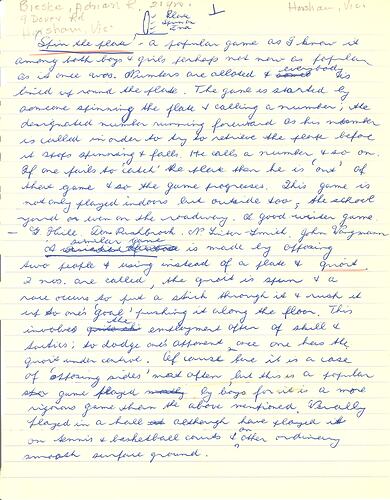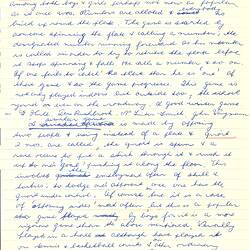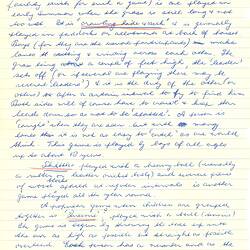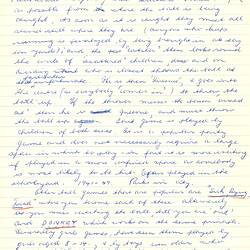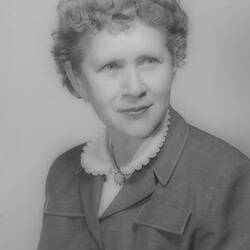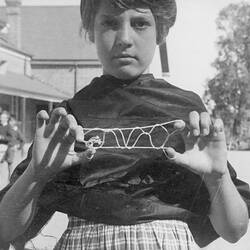Summary
Game names (and types): 'Spin the Plate' (elimination game), 'Quoit', Skittles (play with props/equipment), 'Crawling Hide and Seek' (hiding game), 'Queenie', 'Sick, Dying, Dead', 'Donkey' (ball games)
Alternative types: chasing games, running games
Handwritten letter composed by Adrian R. Bieske, a 21 year old man from Horsham, to Dr Dorothy Howard circa 1954-55. In his letter to Dr Howard, Bieske describes a number of games played during his childhood in rural Victoria. Bieske's descriptions include the number of players, the props involved, the rules, an instructive diagram and the games' popularity with the different genders. He comments on the seasons and locations in which particular games are played. For example Bieske describes the elimination game 'Spin the Plate', which involves players trying to retrieve a spinning play before it falls, as suitable for indoor and outdoor play particularly in winter. The individuals, G(?). Huile, Don Rushbrook, N. Linten-Smith, John Wangmann, appear to have also contributed to the description of this game. Another example of a game popular with boys in country Victoria is 'Crawling Hide and Seek'. According to Bieske, this game involves tunnelling through fields of long grass until spotted by the seeker and thus, it is a game suitable for early summer when the grass is particularly long. Bieske explains several other games including 'Quoit', 'Skittles' and the ball games 'Queenie', 'Sick, Dying, Dead' and 'Donkey'.
One of a collection of letters describing a children's game written to children's Folklorist Dorothy Howard between 1954 and 1955. Dr Howard came to Australia in 1954-55 as an American Fulbright scholar to study Australian children's folklore. She travelled across Australia for 10 months collecting children's playground rhymes, games, play artefacts, etc. This letter, together with the other original fieldwork collected by Dr Howard during this period, is preserved in the Dorothy Howard Collection manuscript files, part of the Australian Children's Folklore Collection (ACFC), Archive Series 3. The ACFC is an extensive collection documenting children's folklore and related research.
Physical Description
Handwritten letter in blue ink on lined paper; three pages with text printed on both sides of the first page. Features handwritten annotations in pencil and red pencil overall.
More Information
-
Collection Names
Australian Children's Folklore Collection, Dorothy Howard Collection
-
Collecting Areas
-
Acquisition Information
Cultural Gifts Donation from Dr June Factor, 18 May 1999
-
Acknowledgement
Donated through the Australian Government's Cultural Gifts Program.
-
Author
Adrian R. Bieske, Horsham, Mallee, Victoria, Australia, 1954-55
-
Addressed To
-
Collector
-
Classification
-
Category
-
Discipline
-
Type of item
-
Overall Dimensions
199 mm (Width), 253 mm (Height)
Orientation: portrait
-
Keywords
